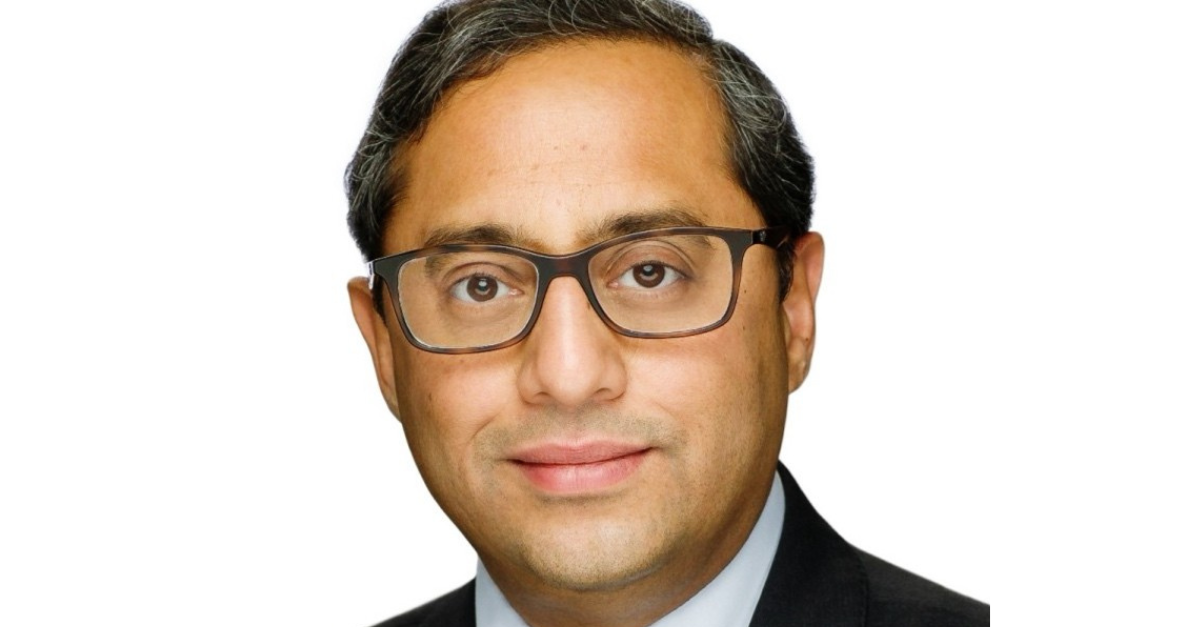Hippocratic AI has seen rapid growth in the past 18 months, inking partnerships with more than 50 large health systems, payers and pharma clients and building 1,000 use cases for its patient-facing healthcare AI agents.
The company banked a $126 million series C round, boosting its valuation to $3.5 million, executives announced Monday. Hippocratic AI has raised $404 million in total funding to date, including a $141 million series B round in January and $53 million in series A funding in March 2024.
Avenir Growth led the series C round, along with backing from new and existing investors, including CapitalG (Google’s growth fund), General Catalyst, Andreessen Horowitz (a16z), Kleiner Perkins, Premji Invest, John Doerr, Rick Klausner, and others. Major health systems Universal Health Services and Cincinnati Children’s Hospital Medical Center along with integrated healthcare system WellSpan Health also backed Hippocratic AI’s series C round.
Avenir Growth focuses on investing in “category leaders,” Andrew Sugrue, co-founder of the venture capital firm, said. “After speaking with a significant number of customers prior to investing, we believe Hippocratic AI is leading the agentic healthcare category. Importantly, we found that their relentless focus on safety has earned them the trust of healthcare organizations around the world, becoming the safe choice for executives when choosing AI agents for deployment in healthcare,” Sugrue said.
The startup launched in 2024 to build out what it refers to as the first large language model for healthcare with an initial focus on non-diagnostic, patient-facing applications. The agents are not used to prescribe or diagnose, executives said. Hippocratic AI released its first commercial product, a generative AI-based, task-specific healthcare agent, in June 2024.
Hippocratic AI now has clients in six countries and it has completed over 115 million clinical patient interactions with no safety issues, according to Munjal Shah, co-founder and CEO of Hippocratic AI.
“Our main thesis with building a product was ensuring that it could do these patient-facing conversations safely,” Shah told Fierce Healthcare in an exclusive interview about the series C funding round.
Shah, a serial entrepreneur who founded the startup Health IQ, launched Hippocratic AI along with a group of physicians, hospital administrators, healthcare professionals and artificial intelligence researchers from El Camino Health, Johns Hopkins, Washington University in St. Louis, Stanford, Google and Nvidia.
Health systems who have adopted Hippocratic AI’s generative AI agents include Cleveland Clinic, Northwestern Medicine, Ochsner Health, Moffitt Cancer Center, University Hospitals, Guy’s & St Thomas’ NHS Trust, Cincinnati Children’s Hospital, Sanford Health, OhioHealth, Memorial Hermann, Eucalia, VNS Health, WellSpan Health, Sheba Medical Center, Universal Health Services, Cleveland Clinic Abu Dhabi, HonorHealth, Burjeel, Medical Mutual, Fraser Health. Other partners include Leidos and LeanTaaS.
The company also is working with national health insurance and pharma companies, Shah noted.
Growing adoption of the company’s generative AI agents underscores Hippocratic AI’s advances to offer “scalable, safe generative AI agents,” Shah noted, and the agents also help to address widespread staffing shortages. The agents can handle tasks such as patient intake screening, annual wellness visit outreach, chronic care management, post-surgical and post-discharge follow-up, medication adherence and cancer screenings.
For payers, agent skills include eligibility and benefits confirmations, medication reconciliation, case management and annual health risk assessments. For pharma companies, the AI agents can assist with educating patients on support programs, pre-screening for clinical trials, real-world evidence longitudinal patient follow-up and above-brand patient education.
The $126 million in fresh funding will help fuel Hippocratic AI’s product development and international growth, Shah said.
“We’re going to continue to fuel this growth that we have in terms of capturing more market share, expanding to other use cases,” he said.
The company also is eyeing M&A opportunities but Shah would not offer further details other than the company is not targeting competitors in the healthcare AI market.
“We realized there’s some good opportunities in the market to continue to expand the offering and continue to take this position and scale it,” he said.
While the healthcare AI market is noisy with a growing list of companies building generative AI tools, Shah insists that Hippocratic AI’s focus on building “safe AI” offers a key point of differentiation and a competitive moat.
The company developed a multi-step framework to certify the safety of its product. Hippocratic AI built a constellation architecture with nearly 30 LLMs are supporting and supervising the main model, according to Shah. The company also perform output testing on its LLMs and hired more than 7,000 U.S. licensed clinicians to make 500,000 test calls.
The AI models also use validated nurse guidelines to escalate a patient call to a human nurse in real-time if it’s necessary. And the company now has 115 million clinical patient interactions and can cross validate that its real-world performance matched its simulated testing.
The company also developed its own speech recognition system for its AI agents with a 6% word error rate. Off-the-shelf speech recognition systems typically have a 12% word error rate, Shah noted. And it continues to build out its speech and language skills to communicate with patients with slurred speech or mild cognitive impairment.
“We’ve been deepening the skills of the product, we’re deepening the experience of the product, but also, I think we have built more trust than almost anybody else out there by just being live with so many folks and having no major incident yet,” he said.
Hippocratic AI has positioned itself as the “market leader in patient-facing clinical AI agents,” Shah asserted.
But he asserts generative AI agents are not yet safe enough to operate within the scope of a physician.
The true benefit of AI is the ability to do preventive health at scale and at lower cost, he noted.
Hippocratic AI developed an AI agent skill to call a large population of patients for heat wave check-ins, which can also be used to check in after a natural disaster. The company put those AI agents to work during the summer to reach thousands of patients in New York City to conduct heat wave assessments. If necessary, the agents then arranged an Uber ride for individuals to take them to a cooling center.
“Let’s say we call 200,000 people to do this heat stroke assessment. If we want to do it with humans, we’d have to find 50,000 nurses with five to 10 days’ notice about a coming heat wave,” Shah said, estimating that would cost $5 million to $10 million a day. An AI-based service costs a fraction of that, he noted.
“If you offset five ER admissions, you’ll break even,” he said.
As health systems look to adopt and scale AI tools, they are looking for vendors that can ensure safe, validated and reliable AI tech. It seems Hippocratic AI has gained that seal of approval for a growing list of healthcare organizations.
“At OhioHealth, safety is the cornerstone of every care decision we make, and we hold our partners to the same standard,” said Dr. Michael Ezzie, M.D., Senior Vice President and President of OhioHealth Physician Group in a statement. “Hippocratic AI’s unwavering commitment to clinical safety, combined with their rigorous testing and validation process, gives us the confidence to deploy their agents in ways that truly support patients and clinicians alike.”
“The safety information on Anna — the name WellSpan Health gave its Hippocratic AI agent — as our AI care assistant is absolutely terrific. We monitor that all the time along with your team. And every one of our clinical leaders and chief medical officers who’ve reviewed that has been very impressed,” said Roxanna Gapstur, Ph.D., RN, President and Chief Executive Officer of WellSpan Health, in a statement.
“Hippocratic AI’s focus on safety, empathy, and clinical alignment makes them a trusted partner as we explore new ways to engage and support our patients and members at scale,” said David Newman M.D., Chief Medical Officer of Virtual Care at Sanford Health in a statement.
“We see AI as a powerful tool to expand our ability to serve patients without expanding clinician burden,” said Paul Hinchey, M.D., Chief Operating Officer of University Hospitals. “What sets Hippocratic AI apart is its uncompromising commitment to empathy, reliability, and clinical safety.”
Investors also are placing their bets on healthcare AI startups as the funding boom continues.
“Hippocratic AI is amongst the fastest growing enterprise healthcare companies we’ve seen in the last few years,” said Julie Yoo, General Partner at Andreessen Horowitz. “Their rapid growth is a testament to the demand for solutions to our industry’s labor and patient access crisis, and the unique capabilities that Hippocratic has brought to market to address those needs.”
General Catalyst co-created Hippocratic AI and has invested in the startup since it launched.
“We believed in Hippocratic AI and the team since inception, and it is a shining example of this thesis in action. They are applying clinically safe, empathetic generative AI in ways that expand access and dignity in care. Their rapid success reflects both their breakthrough solution and the moral imperative to reimagine how care is delivered,” said Hemant Taneja, CEO of General Catalyst.
Publisher: Source link










